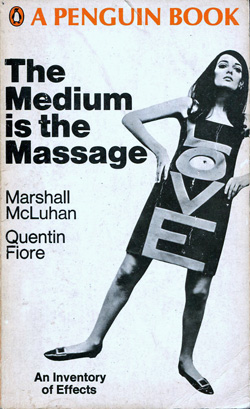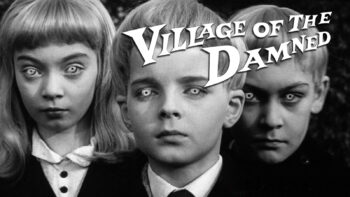The Global Village

In the wake of the 2008 financial crash, the Bishop of London, the Rt. Rev. Richard Chartres, said that those made redundant in the City may find that they come to welcome the release from being slaves to their Blackberry, feeling compelled to be available at all times. “One of the great implications of this turbulence is to reboot our sense of what a truly flourishing human life consists of. The ‘Crackberry’ culture is dangerously addictive, and switching off from it is notoriously difficult”.
Blackberry devices were dubbed ‘Crackberries’ because users found themselves addicted to answering calls and checking messages, even late at night or at weekends, no matter where they were or the occasion. Today almost everyone seems to have a smartphone and the addiction is no longer confined to city whizz kids. The addictive ingredients they now provide are limitless, and often designed to appeal to the very worst of human weakness.
The internet is undoubtedly one of the greatest things to come out of the twentieth century, but throughout history technological change has brought social change. The new media through which we view the world is a strangely distorting lens. Our perceptions and even our psyche can be skewed in once unimaginable ways.
Does anyone still read Marshall McLuhan? As I finished school back in the sixties, I was captivated by his ideas. He is best known for the concepts of “The Global Village” and “The medium is the message”. The latter was famously reimagined in a slim Penguin paperback as “The Medium is the Massage” – a supposed misprint that McLuhan embraced, believing it perfectly captured how media shape and manipulate our perceptions.
The concept of a “Global Village” was envisioned by some idealists as world so shrunk by the speed of communication that we would one day all be neighbours. This hippy dippy ideal was not what McLuhan meant at all. The term “global village” means all parts of the world being brought together, but not necessarily in perfect harmony, as in the 1971 Coca Cola ad. However, it is easy to see how that interpretation came about.

Then came the internet, and with it the smartphone and social media platforms open to all. Suddenly, McLuhan’s ideas were back in vogue. Are we finally entering that idealised Global Village?
Regrettably, I think not. As long ago as 1969 McLuhan said that it never occurred to him that uniformity and tranquillity were the properties of the global village. Indeed he argued that increasing its population will create maximal disagreement on all points with more discontinuity, division and diversity.
I go further. The idealised “Global Village” does not exist and never will. With much of the world connected to the internet, ever growing numbers participate in sharing news and views. True democratisation? Are these millions becoming part of a single connected global community? No they are not. Far from creating a virtual global village, the internet has created the opposite; a world filled with thousands of tiny virtual mediaeval hamlets, each with its own inbred insularity, superstition, fear and occasional witch hunt.
The fact is, as I learned many years ago, “people like people like themselves”. In the past we had to rub along with our neighbours, whoever they might happen to be. Now we can go online and find people more to our liking – yes, people more like ourselves.
As each group bonds, it becomes more inward looking, each member reinforcing the beliefs of the others. Any dissenter is turned on as a heretic. By looking inward, all that information and debate that the worldwide web provides is ignored, except for those snippets that reinforce the beliefs and mores of this one little village. I am sure we have all seen examples of the “wicker man” mentality manifest itself when an outsider questions the orthodoxy of their group on social media and especially X. It is clear that the boon of mass communication does not necessarily bring enlightenment, more often the reverse. The greater the availability of information that questions or threatens our beliefs, the more likely we are to seek out those who do not question us, and exclude and attack any external threat.

Social breakdown, not unity, is the result.
Consider the next well known slogan – “The medium is the message”. Forget the content (in McLuhan’s view that is secondary). It is the medium itself that affects us, both personally and socially.
Rolling TV news delivers gruesome pictures from Gaza directly to our homes. Sure, we are affected by these images, but it is the medium (TV) that creates our reactions – its immediacy and the fact that it primarily engages the visual sense. Image after image pour in, the content being rendered ever more banal by the medium of its delivery. Exactly the same story in print demands a different, more analytical, reaction. The reader is engaged in a way that the passive watcher of TV is not. The story delivered by an eye witness talking to us face to face is different again, and more affecting and engaging. And that is the point. The story, the content, is exactly the same. It is primarily the medium that dictates our reactions and emotional response.
And so it is with the internet and social media, especially when delivered by smartphone. Immediacy and obsession have made robotic clones of otherwise free thinking individuals. The compulsion to respond – instantly – is producing a society devoid of reflection, self awareness and empathy.
For all the genuine social benefits and the tremendous richness of knowledge, commerce and, yes, friendship at our fingertips, there is a darker side. Human intimacy stripped of all richness of expression, tone and touch.
Maybe the Global village is real after all?

